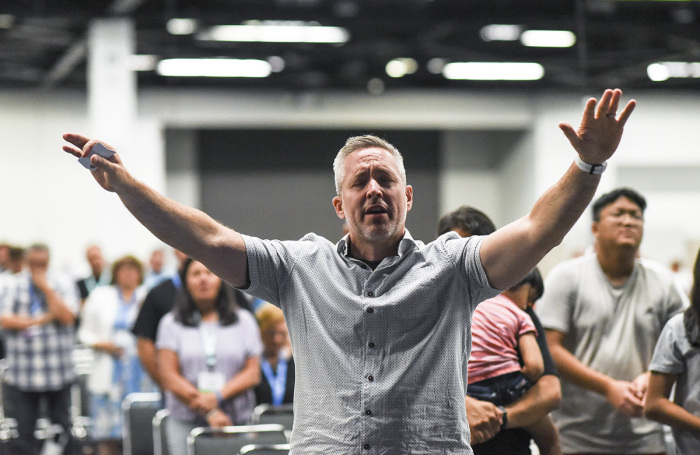
Lawyers for the Chatham County Board of Commissioners in North Carolina have denied claims by The Summit Church that the county violated its civil rights when it rejected an application to rezone nearly 100 acres of land to house its Chapel Hill campus. The multi-campus church is helmed by former Southern Baptist Convention President J.D. Greear.
“Defendant did not engage in, promote, or further any policy or practice which deprived Plaintiff of any rights secured by the Constitution or laws of this land,” attorneys for the County, Patrick H. Flanagan and Samantha M. Owens, wrote in a 24-page response to The Summit Church’s Feb. 14 complaint.
“Defendant’s actions, practices, and policies of which Plaintiffs complain have been based on legitimate and non-discriminatory reasons and are and have been necessary to the orderly, safe, and efficient operation of the County’s business.”
In its 743-page lawsuit, The Summit Church seeks to enforce the church’s “civil rights as enshrined in the First and Fourteenth Amendments to the United States Constitution and codified in the Religious Land Use and Institutionalized Persons Act.”
The Summit Church made several arguments in its lawsuit suggesting that there weren’t any clear reasons to object to the church’s rezoning application while alleging evidence of religious discrimination.
It alleged, for example, that the board’s Vice Chair Mary Roodkowsky argued that Summit Church “is not like the other churches we have in the County” and it was “better suited in a more urban environment. It is not a rural church when you picture a rural church.”
The Summit Church’s lawsuit also noted that some members of the Chatham community claimed the church did not fit the County’s purportedly “progressive, LGBTQ-friendly, and openminded atmosphere.”
The lawsuit further asked the U.S. District Court for the Eastern District of North Carolina to “grant preliminary and permanent injunctive relief requiring the County to approve Summit Church’s rezoning request and associated site plan; enter a Declaratory Judgment that the County’s denial of Summit Church’s rezoning applications violates RLUIPA, and is therefore void; award Summit Church its costs and expenses, including reasonable attorney’s fees; all the damages to which Summit Church is entitled; and any such further relief as it deems appropriate.”
Chatham County officials requested the court to dismiss The Summit Church’s complaint with prejudice, citing multiple defenses, including governmental immunity.
“Defendant pleads all applicable immunities to which it is entitled by operation of law and in bar of Plaintiff’s claims herein, including, but not limited to, governmental immunity, qualified immunity, public officials’ immunity, and the public duty doctrine,” Chatham County’s legal response to Summit Church’s lawsuit notes. “Defendant pleads that, at all times relevant to this action, it was acting without malice and with a good faith belief that all of its duties were carried out in accordance with the Laws and Constitution of the United States and the State of North Carolina.”
Chatham County also asked the court for a jury trial on all contested issues of fact and “all such other relief as the Court may deem just and proper.”
Contact: leonardo.blair@christianpost.com Follow Leonardo Blair on Twitter: @leoblair Follow Leonardo Blair on Facebook: LeoBlairChristianPost


















